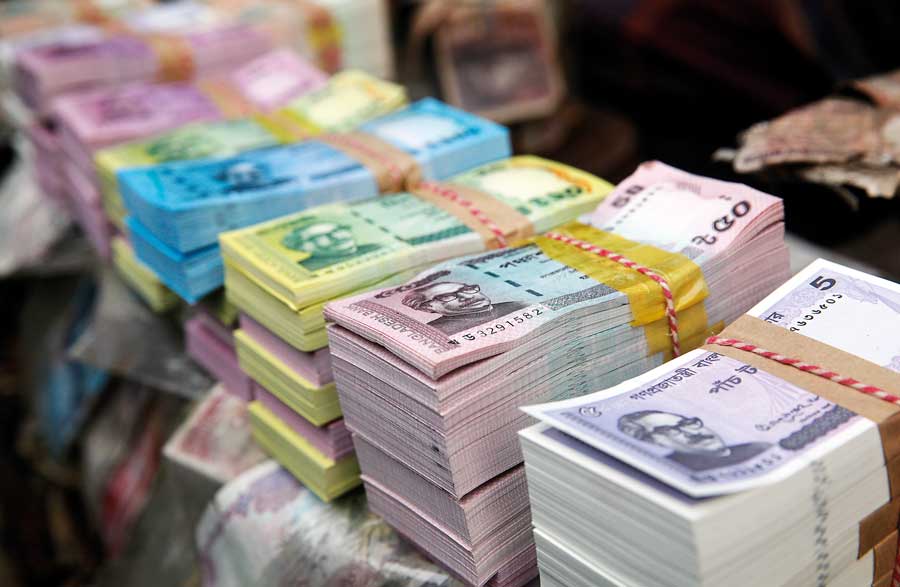The central bank should depreciate the taka against the US dollar gradually, if necessary, in order to avoid hurting the economic recovery and stocking inflationary pressures as Bangladesh is an import-dependent country, said Mostafa Kamal, chairman and managing director of Meghna Group of Industries.
“If the depreciation is not gradual, it will have a huge impact on every sphere of the economy and life,” he told The Daily Star in a phone interview.
On Sunday, the Bangladesh Bank brought about a major depreciation of the local currency to tackle pressure stemming from surging import payments and encourage remitters.
The interbank exchange rate hit Tk 86 per dollar for the first time in history, up from $85.80 on Thursday, showed data from the central bank.
Kamal says the current interbank exchange rate is much lower than in the rate in the kerb market, where it stands at around Tk 90 per USD.
Importers used to buy US dollars for Tk 85 two months ago but it has gone past Tk 87 per USD.
Currency devaluation is preferred by exporters, but Kamal says depreciation is not a continuous solution.
“As Bangladesh is an import-based country, we have to strike a balance between the interests of importers and exporters.”
According to the noted businessman, any major devaluation of the taka will raise the prices of all goods. “It has a bigger effect on food and diesel prices and transport fare.”
“Policy-makers would have to find out whether the depreciation would be fast or gradual.”
Kamal says that most businessmen are importers. This is also true in the garment industry.
“We have been able to manufacture some accessories, but a majority of them are still imported.”
Speaking about the increased of commodity prices, he says the price of crude degummed soybean oil, or palm oil, has risen.
It used to cost $500 to $800 per tonne in the past. Now it costs $1,400. The duty has also increased.
“If the price increases by Tk 0.5 because of the currency devaluation, the price of the final goods will go up as well because import duties and other costs are added,” said Kamal.
He thinks it will not be a good idea to recommend curbing imports for the sake of keeping the foreign currency reserves stable as the move will rein in the growth of the economy.
Remittance flow to Bangladesh has slowed to some extent in recent months. But exports are performing well compared to the previous year.
A higher growth in the import of machinery means the economic stagnation has been over. It will generate jobs and accelerate economic activity.
“Imports have surged. Machinery imports have gone up after a lull for two years. There is no need to panic about rising machinery imports. Rather, it should be encouraged. People are returning to activities strongly.
“It is a good sign for the economy,” said Kamal.
He calls for looking at Turkey’s situation.
The country’s currency, lira, has lost at least 35 per cent of its value against US dollars. Inflation has touched a two-decade high. As a result, there is a crisis in the country.
“As we are import-dependent country, any major hike in the interbank rate will stoke inflationary pressure. The effects will be felt across the country,” Kamal said.
According to the entrepreneur, the economy has just started to return to normalcy from the coronavirus pandemic. “We, the businessmen, are optimistic.”
“Businessmen could not do well in 2020 and 2021. Now, they are more serious. Their business volume is growing. Businessmen hope that there will be a boom in the economy.”
Although the prices of imported goods and materials have gone up, the prices can’t be passed onto customers automatically, he said.
“Sometimes, we are compelled to raise prices. Sometimes, we keep the cost in the off-balance sheet. We will adjust the balance sheet when we make profit,” Kamal added.

